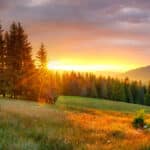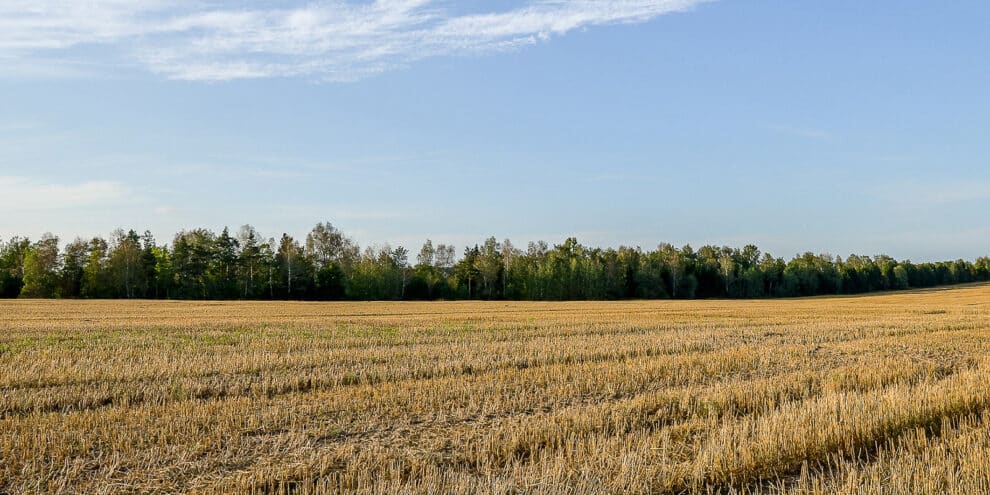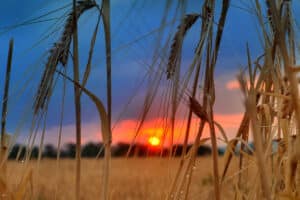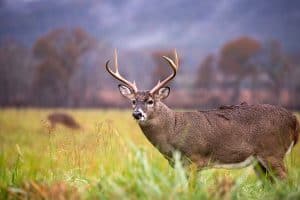In the Southeast, the start of dove hunting season is, what some would consider, a glorified holiday. The hunting of doves in late summer has been a southern tradition for generations, with thousands of hunters heading into the field in pursuit of the small, acrobatic, and tasty birds. With the opening day of dove hunting season fast approaching, many landowners in the Southeast are preparing their dove fields for their annual hunt. A strategic plan is essential when preparing and managing dove fields for a successful hunt. In this guide, we’ll take a look at the steps you need to take to prepare a dove field in the Southeast.
Select the Right Location – Identifying the right location is the first and most crucial step in preparing a dove field. Doves are strong fliers and prefer large expanses of open areas without tall vegetation for daily movements. Look for open fields that have been harvested or mowed recently. It is a good strategy to plant your dove field near a water source with habitat for perching and roosting nearby, as doves must drink water regularly. Water sources suitable for doves include ponds, lakes, livestock water troughs, streams, and puddles.
Soil Preparation – Once you’ve identified your location, it’s time to consider the soil under your feet. Doves prefer sandy or loamy soils, so if you have clay soil, you may need to add sand and organic matter to improve the soil’s structure. Test your soil’s pH levels and amend accordingly, keeping in mind that doves prefer neutral to alkaline soil. Finally, plow your field to prepare it for planting.
Planting – Planting is one of the most crucial steps in preparing a dove field. Although doves will feed on a variety of different seeds, there are a few that stand out above the rest. Small-seeded crops such as millet, sunflower, sorghum, and corn are some of the more popular and productive crops used in Southeastern dove fields. Plant early in the season to ensure a good crop, and plant in strips rather than broadcasting seed. This method provides a better habitat for doves and makes it easier to manage the crop. Baiting regulations should always be a concern, but regulations regarding doves differ slightly than regulations for waterfowl. You can’t hunt birds over dumped seed, but in most cases, mowed fields are legal and actually provide habitat and nutrients to a variety of wildlife. Reach out to a conservation officer for information regarding the regulations pertaining to baiting.
Maintenance – Once you’ve planted your dove field, regular maintenance is key. Keep your field mowed to prevent vegetation from becoming too tall and sparse. Also, keep an eye out for pest infestations and diseases and treat them accordingly. Finally, when the crop is ready, use a strip-harvesting technique to provide a better habitat for doves.
Watering – Doves need access to water for drinking and bathing, so providing a suitable water source near your field is essential. It’s not uncommon to see doves watering multiple times a day, especially during periods of warm, dry weather. A source that has little vegetation around the shore to obstruct the birds is ideal. Ensure your water source is fresh and clean, and provide plenty of shade to avoid evaporation.
The preparation of a dove field can seem overwhelming, but following these steps, you’ll be well on your way to a successful hunt. Remember to choose the right location, prepare your soil, plant small-seeded crops, maintain your field, and provide a water source to attract doves. Preparation and maintenance – and honing your shooting skills before opening day – are key to a successful dove hunting season. Remember, dove hunting is not only about the thrill of the hunt but also about camaraderie and sharing the experience with friends and family. With a little bit of hard work and attention to detail, you’ll surely have an amazing dove hunting season.
This content may not be used or reproduced in any manner whatsoever, in part or in whole, without written permission of LANDTHINK. Use of this content without permission is a violation of federal copyright law. The articles, posts, comments, opinions and information provided by LANDTHINK are for informational and research purposes only and DOES NOT substitute or coincide with the advice of an attorney, accountant, real estate broker or any other licensed real estate professional. LANDTHINK strongly advises visitors and readers to seek their own professional guidance and advice related to buying, investing in or selling real estate.










Add Comment